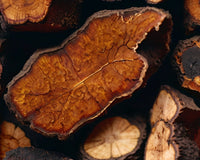What is potassium sorbate?
Potassium sorbate is a food preservative commonly used in the baking industry to prevent the growth of mold, yeast and microorganisms. It is commonly used in cakes and icings, beverage syrups, cheeses, dried fruits, margarines, pie fillings, wines, etc., and its concentration depends on the specific application. It is a water-soluble ingredient with the formula C6H7KO2. Potassium sorbate is available in the market in powder or granular form. It is effective at pH levels up to 6 but drops off rapidly at higher levels.

Origin
Potassium sorbate is produced by combining potassium hydroxide and sorbic acid to form a potassium salt. Sorbic acid occurs naturally as a lactone in berries such as the rowan berry from which it was first isolated, Sorbus aucuparia L,1. Some fruits such as cranberries, blackcurrants, and strawberries naturally contain sorbic acid.
Commercial production
Sorbic acid is produced commercially using the ketene-crotonaldehyde condensation method. It is purified by treating sorbic acid with sodium hydroxide, hydrochloric acid and activated carbon. Potassium salts can be produced from batch or sorbic acid production streams prior to drying. It is further granulated by extrusion and granulation.
Function
Similar to other sorbates, potassium sorbate can:
- Inhibit microbial growth by changing cell membrane morphology and integrity.
- Disrupts transport function and metabolic activity.
- Inhibits mold growth in baked products more effectively than other preservatives such as calcium propionate and sodium benzoate.
- Extend product shelf life with limited impact on food quality. If used in very high concentrations, it can adversely affect taste and flavor.
Application
Potassium sorbate is commonly used in chemically fermented products (dry blended with flour) at 0.03% to 0.4% of batter weight. Since potassium sorbate has a destructive effect on yeast cells, it will reduce the volume of bread and produce sticky dough that is difficult to process, so it is not suitable for bread baking. Potassium sorbate can also be sprayed on products such as tortillas after baking.
FDA regulations
In the United States, sorbic acid and potassium sorbate are considered GRAS (generally recognized as safe) (21 CFR 182.3089; 21 CFR 182.3225; 21 CFR 182.3640; and 21 CFR 182.3795).





